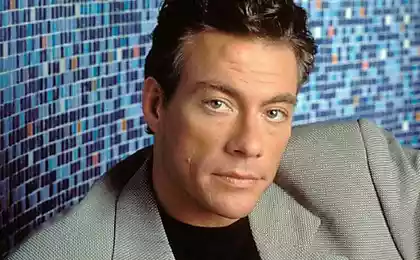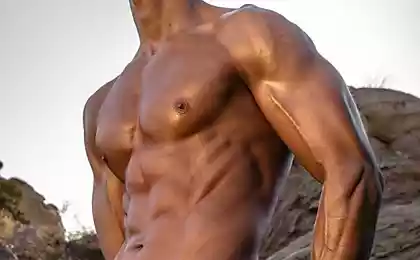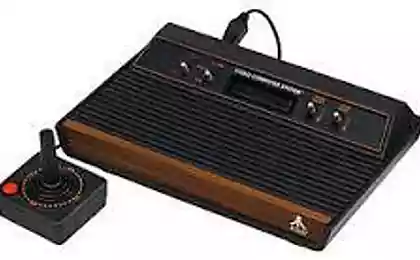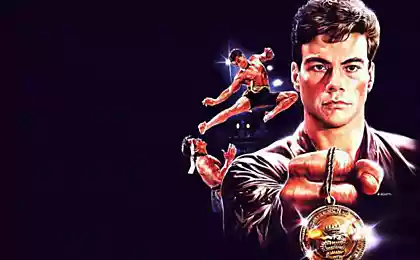910
Heavenly perfectionist: as Frank Wang has created a new market and became a billionaire
Frank van consistently moving towards the realization of the dream of a perfect drone. 34-year-old founder of the Chinese company DJI for a few years has grown into a market leader drones, made a fortune of $4.5 billion and acquired a dangerous enemy.
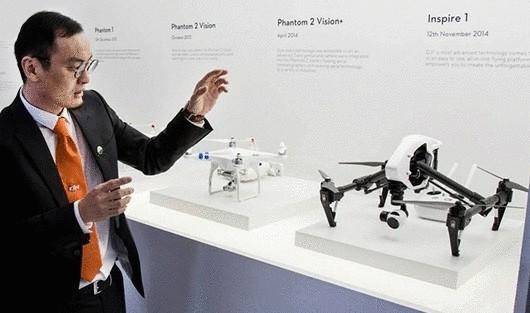
A photo of DJI Global, Frank Wang Tao never sat in prison. He pays taxes and does not abuse strong drinks. But all this did not save the first ever dollar billionaire, made a fortune in the manufacture of drones, from problems with the law in the United States. To protect themselves, the Chinese businessman agreed to give Forbes his first Western media interview.
His company was in the midst of the scandal quite unintentionally – when a drunk employee of the American intelligence, being over 8000 miles from van factory in Shenzhen, in Washington, for the sake of fun started to be owned by his friend, the drone. An inexperienced Navigator, the unit lost in the dark and at dawn the drone landed right on the White house lawn, and its manufacturer got on the front pages of all the world's media.
This manufacturer is van. And his misfortune was not over. In April on the roof of the office the Japanese Prime Minister flew a drone with a bottle of radioactive waste – "Hello" from one of the environmental activists, in March at London's jail has been disclosed a scheme for the supply of drugs, weapons, and smartphones to inmates through machines are all the same company. The idea that your product will become a tool of violation of laws and the destruction of social boundaries seem a nightmare to the majority of large corporate managers. But van, this gray Eminence of the world "provided the" revolution, critics simply shrugs.
"I don't think it's worth to give these stories meaning. They even help us," shrugs the 34-year-old founder and CEO of Dajiang Innovation Technology Co. (DJI), which, according to analysts firm Frost & Sullivan, covers 70% of the global market for civil unmanned aerial vehicles (UAVs). An example of such "aid" – update software drones, thanks to which now none of them will fly in a zone with a radius of 15.5 miles around the residence of the President of the United States.
For venting phlegm van lies not only calm, but also the desire to protect your success. In 2014 the DJI had sold about 400,000 vehicles, and driver of the business remains the flagship model of the Phantom drone. In 2015, revenue is expected to double – from $500 million to $1 billion, Sources close to the DJI claim that the manufacturer has last year achieved a net profit of $120 million And in the period since 2009, sales have shown impressive growth year-on-year figure jumped, three and even four times. Investors are assured at least the next few years the position of the van as the dominant market player will remain intact. In April, the company closed another round of funding, according to its results, DJI is estimated at $10 billion. Wang, who owns 45% of the business, suddenly became the possessor of a fortune of $4.5 billion with him in the Forbes list soared Chairman of the Board of Directors of the company and two of its key employee. "DJI started as a hobby, which turned into the global market. The rest just have to catch up" – says the analyst Frost & Sullivan Michael Blades.
Goliath is on the warpath
In the annals of history, it is hardly possible to find equivalents: the company — a market leader which has made a dizzying leap from enthusiasts to big business. Kodak once did something similar with cameras, Dell, and Compaq – from personal computers and GoPro – with all-weather cameras. And let the skeptics laugh at the plans of the owner of Amazon Jeff Bezos for delivering packages drones, UAV step by step win back his place in the sun. Their use for commercial purposes has become common place: the drones provide a stream of air past the ceremony of "Golden globes" in Nepal rescuers were using them to study the victims of the destructive earthquake areas in Iowa, farmers using machines watching corn fields, drones Facebook plans to deliver Internet signal in rural parts of Africa, and the operators of "game of thrones" and the new "Star wars" using a UAV shoot breathtaking footage. DJI next task is to flood the consumer market is new and best in quality and price of the machines, as happened in January 2013 with a Phantom model. The price tag then dropped to $679 with the usual drones of at least $1000 and "phantom" became a bestseller.
Today, the competitors not only caught up, but something and overtook the leader. In addition, the progress of hamper hard-nosed bureaucrats from the Federal aviation administration of the United States, which insist on a total ban of commercial drone use and don't compromise. The main sparring partner DJI – California's 3D Robotics, founded by the former editor of Wired magazine Chris Anderson and staffed by former employees of DJI. Among them the former head of the North American division of a Chinese company Colin Gwynn, which with the scandal left the team of van and calls his new employer "David beating Goliath – DJI". Armed with "David", however, is not only a sling – recently 3D Robotics raised a $100 million investment. Other prospective competitors – French Parrot, whose sales in 2014 reached $90 million, and a bunch of Chinese manufacturers, does not shy away from copying the most successful technical solutions DJI. On the show consumer electronics show CES 2015 in Las Vegas dozens of drones took a huge part of the exhibition space.
Thick-rimmed glasses, thin beard and cap to hide the bald spot – van at first glance does not guess an influential innovator. Nevertheless, he is serious about his mission since the launch of the DJI, which was held in a room Hong Kong hostel in 2006.
Van realizes that he on the warpath, and therefore does not spare former business partners, employees and even friends.
His goal is to transform the DJI global Chinese technology brand which will rise in line with smartphone manufacturer Xiaomi and giant e-Commerce Alibaba. Unlike these two companies, DJI is a full – fledged international leader of its segment. It is time to draw Parallels with Apple – but only van shy any flattery.
In his office there are signs in Chinese with the words "for smart ones Only" and "leave Emotions at the door." The owner of the office these rules to be implicitly. Sarcastic and sensible leader, he works more than 80 hours a week so wooden double bed standing next to his Desk. Van admits that did not attend the April presentation of the third generation of "phantom" in new York because "the product was not so perfect" as expected, the founder of DJI.
"I appreciate the idea of Steve jobs, but I have no idols, says billionaire by a native Chinese. All I need is to be smarter than others, to stand out from the crowd. If you can do it, success will definitely come."
Heavenly perfectionistpassion of van sky and aircrafts from childhood – even in elementary school, he invented a comic book about the adventures of the red helicopter. The future businessman was born in 1980 in the coastal city of Hangzhou in Central China (there is also the headquarters of Alibaba). His father from the teacher turned into a small businessman and engineer. Wang spent most of his time reading books about aeromodelling is a hobby brought him a lot more fun than school. Frank dreamed of his own "aviate" device that will be able to fly everywhere to follow the master camera. In 16 years, van well passed the exams and received a gift – a remote control helicopter. But a fancy toy immediately crashed – and Frank had a few months to wait for delivery of new parts from Hong Kong.
Cool attitude eventually impeded the WAN to realize a dream and to arrive in elite American University. After failures with Stanford and the Massachusetts Institute of technology Frank became a student at the faculty of electronic engineering, Hong Kong University of science and technology. Plans for the future, he could not decide until the last course when engaged in the construction of the first experimental model of the system of control of the aircraft. The project drew student. Van ceased to appear at classes and did not sleep until five in the morning, blowing the dust with their offspring. And though on the eve of the presentation in the onboard computer of the machine is out of order the function "hangs" in the air, the efforts of a young developer was well spent. Professor of robotics If Csesar appreciated the leadership and technology vision of van and turned it into a scholarship program for University graduates. "I can't say that he was smarter than that," recalls Lee, who at first was an adviser and investor, DJI, and now with a share of 10% is a minority shareholder and Chairman of the Board of Directors of the company. According to him, "success in work is not always directly correlated with high ratings".
Prior to 2006, Wang has built prototypes of their management systems in a University dormitory, and then, together with two fellow students moved to the industrial hub near Shenzhen. The partners rented an apartment with three bedrooms and the first capital of the enterprise made money, saved Frank from the University grant. DJI sold the product at $6,000 apiece. Clients included universities and state energy company, conducted experiments with drones. From the proceeds van paid the salaries of several employees — graduates of his Alma mater. "I had no idea how big this market – says the entrepreneur. We just wanted to bring the product to mind, to feed their families 10-20 employees and to keep the core".
The shortage of long-term planning and the complex nature of Vana at first did not contribute to cohesion of the team. In the DJI was a turnover, employees had difficulty getting along next to the overly demanding and miserly on gratitude boss. For the first two years of company's existence it was time to leave almost all members of the team founders. Van admits that sometimes turned into a "stubborn perfectionist" and he had to "annoy" subordinates.
Amid infighting in the team things have DJI was neither good nor bad. The company sold twenty devices a month, and at some point survived only thanks to the support of friend of the family van named Liu Di in the end of 2006, it has invested in the project $90 000. The founder of DJI admits that at the time of critical need of money. Although he jokingly calls his Savior "miser", Liu remains one of the largest owners of DJI with a share of 16%, which is now worth $1.6 billion.
Another key to the history of the company man is the best friend of van swift Czase. Since 2010, he manages the marketing DJI and is considered a confidant of the founder. Swift, whom van teases "silver carp", at the time, for the support of the company sold the apartment.
Give him a hundredfold: 14-the percentage of Manager today is estimated at $1.4 billion.
Based on the correct environment, Wang continued to beat on market expansion. He began to sell his devices to the same enthusiasts abroad, for example in Germany and New Zealand. In the US meanwhile, the editor of Wired Chris Anderson started the DIY Drones forum ("Drones, made by hand"), which has United lovers of advanced aircraft. They were all captured by the idea of developing a new device type – a drone with four propellers compared to the single-engine UAV, this model was cheaper to produce and easier in the programming side of "stuffing". DJI, catching the trend, also engaged in upgrading its product. Control system from the van was moving in the direction of auto pilot and attracted more and more attention in niche exhibition show. Sometimes these events were collected by 70,000 people – as, for example, in the town of Muncie, Indiana, in 2011.
In Mansi, the founder of DJI met with Colin Guinna – hard hit by brutal native of Texas, which thanks to its photogenic appearance once even participated in a TV show about travelling The Amazing Race. Have guinna was a startup at the intersection of aircraft modeling and cinema. In search of drone, can be a reliable platform for shooting video, he wrote to the head of the Chinese company. The van appeared to have worked smoothly on the project, dreamed of Gwynn, he was engaged in the improvement of the suspension of the new drone that was to allow the onboard electronics, including the camera, do not feel shaking in the air and give stable high-quality image. On the way to the goal founder DJI dismissed three prototypes (and fired one Intern). In the end, the ideal solution was found: Wang has figured out how to connect the motor drone with a suspension that its power was enough for the entire structure is greatly reduced the weight of the device and reduced the cost of production. With $2000 in 2006 the price tag of the DJI product by 2011 had fallen to $400.
After meeting with the managers DJI in Muncie in August 2011 Gwynn flew to Shenzhen, where agreed to open the American branch of DJI North America. Office in Austin, Texas, with the blessing of van should be to help Chinese companies to reach the mass market in the United States. Gwynn received company share of 48%, DJI with 52% of retained control. The new American Ambassador of Chinese brand took over sales and marketing of English – he was the author of the best-known slogan DJI The Future of Possible ("possible Future"). Initially, the partners were getting on van today speaks Gwynne as "excellent seller", whose "ideas are sometimes inspired".
34-year-old founder of the Chinese company DJI for a few years has grown into a market leader drones, made a fortune of $4.5 billion and acquired a dangerous enemy To the end of 2012, DJI gathered together all his design achievements – soft, propellers, frame, suspension and control system. The public drone Phantom introduced in January 2013. It was a breakthrough – the first fully airworthy and equipped the quadrocopter, able for an hour to be in the air and not crashing after a hard landing. The simplicity and accessibility of the phantom finally brought the UAV beyond the club's enthusiasts to a new, much larger audience.
At the same time, the relationship of van and gwynna began to deteriorate. The founder of DJI didn't like that the American companion appropriating the laurels of the inventor of Phantom and calls himself not only as "the CEO of DJI Innovations" (this wording still listed in guinda profile on LinkedIn). Sources familiar with the situation also claim that Gwynn showed excessive activity in the partnership agreements. The worst disorder occurred due to manufacturer of portable cameras GoPro, which filing Chapter DJI North America claimed to be the exclusive supplier for "phantoms". Van was afraid to only one contractor and not followed the advice guinda, at the same time angering and GoPro (the company rumored to be working on creating its own drone).
DJI originally planned to become cost-effective by Phantom retail price of $679. "We released the product in the base, so that competitors are unable to quickly begin play in the fall," Wang said. To his surprise, the model rapidly became a bestseller, five times increasing the company's revenue even without massive investment in marketing. An even more important factor is the global popularity of "phantom" revenue DJI diversified into three key market – the US (30% of revenues), Europe (30%) and Asia (30%), and the rest is Latin America and Africa. Wang does not hide the pride: "the Chinese used to think that quality products can only be imported, and local levels are lower, we never considered first class. Me, these stereotypes are not satisfied, I want it to be changed."
In may 2013, DJI tried to redeem a share guinna in the North American division, instead proposing a humiliating 0.3% in the parent company, the litigation between the former partners. Gwynn refused – he insisted that his role in 30% of revenue DJI in the US market should be evaluated much higher. But van on the stage was: by December, all employees of DJI North America lost access to corporate email, and client payments were forwarded directly to the Chinese headquarters. In the New year's eve subordinates guinna notified about the dismissal, and the office in Austin has begun an inventory of the property. 2013 DJI ended with a gain of $130 million.
At the beginning of the next year, Gwynn filed a lawsuit against the company, although, according to sources of Forbes, in August 2013 agreed to compensation in the amount of $10 million (DJI in this sum is not confirmed, but more accurate data could not). About the same it would be worth 0.3% of the DJI, which the plaintiff refused, in the same period, the Fund Sequoia Capital has invested in a DJI about $30 million based on the valuation of the business in a $1.6 billion "to Say that I didn't do anything for the success of the Phantom, as ridiculous as to claim I was the inventor model," explains the reasons for its action Gwynn, who together with former colleagues in parallel with an appeal to the court has a job at 3D Robotics to take revenge on former employer.
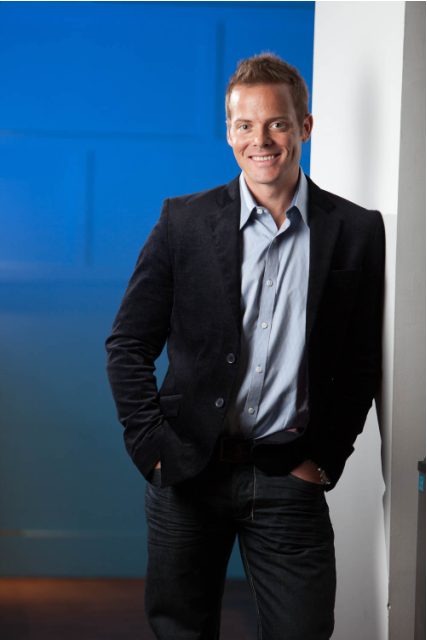
After a quarrel with Frank van Colin Gwynn challenged former, rabotodatelyam 3D Android RoboticsВоздушный the Main threat to the dominance of the DJI in the consumer market, drones huddled in the sun-drenched four-tiered patio on the coast of California Berkeley, next to Silicon valley. In the mansion of engineers 3D Robotics. Every week they dedicate dozens of hours of testing and programming the "killer phantom" – the drone of The Solo. Presented to the public in April 2014, this black drone constantly buzzing above the roof of the building like a swarm of angry bees. The CEO of 3D Robotics Chris Anderson, meanwhile, explains in Forbes why his company for DJI is like Apple to Android.
Admiring the elegance and simplicity of his creation, is frankly drawn from the ideological heritage of the Phantom, this charismatic in communicating competitor Wang insists that the main thing – not hardware but software. Unlike operating system the DJI closed to developers, 3D Robotics operates fundamentally on the model of open source, that is, attracts all programmers and any company, including Chinese epigones DJI, to improve and expand the functionality of the platform and reduce the cost of the final product. If all players switch to software from 3D Robotics, Anderson says, it is 3D Robotics, DJI and not will be masters of the market, despite a lag in sales. "DJI is a business in a time when for me, the modeling of drones is still considered a hobby. And, to their credit, they are perfectly showed itself, recognizes former editor of Wired. Now we are playing on a foreign field, so have to catch up."
To catch up from 3D Robotics, which among investors scale giants Qualcomm and SanDisk, it turns out well. The company has moved production from Mexican Tijuana to Shenzhen, and Gwynn, occupies here the post of commercial Director, establishes the same distribution channel that DJI (and he finally concluded an exclusive partnership with GoPro).
Van lifts his competitors, like a boastful child in kindergarten.
"The chance to survive, they have little – cuts the founder of DJI. They have, of course, is money, but money from me even more. I'm more myself and I have more people. When the market was small, we were all equal. And I won".
Despite the belligerent rhetoric of both sides, 3D Robotics and DJI are faced with the same challenges – public distrust and hardness regulators. On every magic video about the migration of whales and the melting of glaciers, captured with the drone, we have news about drones used for killing and spying. Fears for personal safety and privacy are arming the opponents of the commercial use of UAVs, and authorities are on guard of their interests. Especially the Federal office of civil aviation USA. "Right now, drones in the sky at all, and it's crazy, says Anderson. – Everything we argue, is still only fantasy."
The loneliness of the samurai van in his office in Shenzhen to talk about the future they invented the industry not shy. To convey the idea, the founder of DJI takes off the shelf a real sword Japanese samurai, the blade of which is already 450 years old, and starts to hack them lying on the table cards. "Japanese masters have always strived for perfection, says the businessman, while katana destroys the paper. – China has the money, but the local products and services is terrible, but for something decent you have to pay a lot of inadequately".
The company's van is still far from the best examples of Japanese blacksmithing. The billionaire admits that Phantom "is not a perfect product," and that sometimes DJI drones simply fly away from their owners due to software failures. "But we have the space for progress," he says, hinting at the sprawling more than 200 employees staff the customer service.
Another headache master DJI – industrial espionage. He is confident that several Chinese start-UPS in the last two years illegally appropriated the design practices of his company. Van at least two embedded catch spies who passed information to competitors.
Such attacks are dangerous in a predatory corporate ecosystem of Shenzhen, where before you know it – and the drones will fall into the stream, like smartphones and laptops.
The price of drones will fall, and the atmosphere of "Butikovsky" of the market will disappear, predicts analyst firm Gartner Gerald van hoy. In his opinion, with the DJI at the same time "everything will be okay, because they've already staked a share and well known to consumers."
Wang is not going to share heaven with competitors, especially in light of the large commercial prospects of UAVs in agriculture, construction and mapping. "Our future growth is directly dependent on the speed with which we will find responses to new technological requests. Never be satisfied with what we have" – sums up the billionaire.published
Author: Ryan Mack
P. S. And remember, only by changing their consumption — together we change the world! ©
Source: www.forbes.ru/tekhnologii/mekhanizmy-i-gadzhety/288877-voina-dronov-kak-frenk-veng-sozdal-novyi-rynok-i-stal-milli?page=0,1

A photo of DJI Global, Frank Wang Tao never sat in prison. He pays taxes and does not abuse strong drinks. But all this did not save the first ever dollar billionaire, made a fortune in the manufacture of drones, from problems with the law in the United States. To protect themselves, the Chinese businessman agreed to give Forbes his first Western media interview.
His company was in the midst of the scandal quite unintentionally – when a drunk employee of the American intelligence, being over 8000 miles from van factory in Shenzhen, in Washington, for the sake of fun started to be owned by his friend, the drone. An inexperienced Navigator, the unit lost in the dark and at dawn the drone landed right on the White house lawn, and its manufacturer got on the front pages of all the world's media.
This manufacturer is van. And his misfortune was not over. In April on the roof of the office the Japanese Prime Minister flew a drone with a bottle of radioactive waste – "Hello" from one of the environmental activists, in March at London's jail has been disclosed a scheme for the supply of drugs, weapons, and smartphones to inmates through machines are all the same company. The idea that your product will become a tool of violation of laws and the destruction of social boundaries seem a nightmare to the majority of large corporate managers. But van, this gray Eminence of the world "provided the" revolution, critics simply shrugs.
"I don't think it's worth to give these stories meaning. They even help us," shrugs the 34-year-old founder and CEO of Dajiang Innovation Technology Co. (DJI), which, according to analysts firm Frost & Sullivan, covers 70% of the global market for civil unmanned aerial vehicles (UAVs). An example of such "aid" – update software drones, thanks to which now none of them will fly in a zone with a radius of 15.5 miles around the residence of the President of the United States.
For venting phlegm van lies not only calm, but also the desire to protect your success. In 2014 the DJI had sold about 400,000 vehicles, and driver of the business remains the flagship model of the Phantom drone. In 2015, revenue is expected to double – from $500 million to $1 billion, Sources close to the DJI claim that the manufacturer has last year achieved a net profit of $120 million And in the period since 2009, sales have shown impressive growth year-on-year figure jumped, three and even four times. Investors are assured at least the next few years the position of the van as the dominant market player will remain intact. In April, the company closed another round of funding, according to its results, DJI is estimated at $10 billion. Wang, who owns 45% of the business, suddenly became the possessor of a fortune of $4.5 billion with him in the Forbes list soared Chairman of the Board of Directors of the company and two of its key employee. "DJI started as a hobby, which turned into the global market. The rest just have to catch up" – says the analyst Frost & Sullivan Michael Blades.
Goliath is on the warpath
In the annals of history, it is hardly possible to find equivalents: the company — a market leader which has made a dizzying leap from enthusiasts to big business. Kodak once did something similar with cameras, Dell, and Compaq – from personal computers and GoPro – with all-weather cameras. And let the skeptics laugh at the plans of the owner of Amazon Jeff Bezos for delivering packages drones, UAV step by step win back his place in the sun. Their use for commercial purposes has become common place: the drones provide a stream of air past the ceremony of "Golden globes" in Nepal rescuers were using them to study the victims of the destructive earthquake areas in Iowa, farmers using machines watching corn fields, drones Facebook plans to deliver Internet signal in rural parts of Africa, and the operators of "game of thrones" and the new "Star wars" using a UAV shoot breathtaking footage. DJI next task is to flood the consumer market is new and best in quality and price of the machines, as happened in January 2013 with a Phantom model. The price tag then dropped to $679 with the usual drones of at least $1000 and "phantom" became a bestseller.
Today, the competitors not only caught up, but something and overtook the leader. In addition, the progress of hamper hard-nosed bureaucrats from the Federal aviation administration of the United States, which insist on a total ban of commercial drone use and don't compromise. The main sparring partner DJI – California's 3D Robotics, founded by the former editor of Wired magazine Chris Anderson and staffed by former employees of DJI. Among them the former head of the North American division of a Chinese company Colin Gwynn, which with the scandal left the team of van and calls his new employer "David beating Goliath – DJI". Armed with "David", however, is not only a sling – recently 3D Robotics raised a $100 million investment. Other prospective competitors – French Parrot, whose sales in 2014 reached $90 million, and a bunch of Chinese manufacturers, does not shy away from copying the most successful technical solutions DJI. On the show consumer electronics show CES 2015 in Las Vegas dozens of drones took a huge part of the exhibition space.
Thick-rimmed glasses, thin beard and cap to hide the bald spot – van at first glance does not guess an influential innovator. Nevertheless, he is serious about his mission since the launch of the DJI, which was held in a room Hong Kong hostel in 2006.
Van realizes that he on the warpath, and therefore does not spare former business partners, employees and even friends.
His goal is to transform the DJI global Chinese technology brand which will rise in line with smartphone manufacturer Xiaomi and giant e-Commerce Alibaba. Unlike these two companies, DJI is a full – fledged international leader of its segment. It is time to draw Parallels with Apple – but only van shy any flattery.
In his office there are signs in Chinese with the words "for smart ones Only" and "leave Emotions at the door." The owner of the office these rules to be implicitly. Sarcastic and sensible leader, he works more than 80 hours a week so wooden double bed standing next to his Desk. Van admits that did not attend the April presentation of the third generation of "phantom" in new York because "the product was not so perfect" as expected, the founder of DJI.
"I appreciate the idea of Steve jobs, but I have no idols, says billionaire by a native Chinese. All I need is to be smarter than others, to stand out from the crowd. If you can do it, success will definitely come."
Heavenly perfectionistpassion of van sky and aircrafts from childhood – even in elementary school, he invented a comic book about the adventures of the red helicopter. The future businessman was born in 1980 in the coastal city of Hangzhou in Central China (there is also the headquarters of Alibaba). His father from the teacher turned into a small businessman and engineer. Wang spent most of his time reading books about aeromodelling is a hobby brought him a lot more fun than school. Frank dreamed of his own "aviate" device that will be able to fly everywhere to follow the master camera. In 16 years, van well passed the exams and received a gift – a remote control helicopter. But a fancy toy immediately crashed – and Frank had a few months to wait for delivery of new parts from Hong Kong.
Cool attitude eventually impeded the WAN to realize a dream and to arrive in elite American University. After failures with Stanford and the Massachusetts Institute of technology Frank became a student at the faculty of electronic engineering, Hong Kong University of science and technology. Plans for the future, he could not decide until the last course when engaged in the construction of the first experimental model of the system of control of the aircraft. The project drew student. Van ceased to appear at classes and did not sleep until five in the morning, blowing the dust with their offspring. And though on the eve of the presentation in the onboard computer of the machine is out of order the function "hangs" in the air, the efforts of a young developer was well spent. Professor of robotics If Csesar appreciated the leadership and technology vision of van and turned it into a scholarship program for University graduates. "I can't say that he was smarter than that," recalls Lee, who at first was an adviser and investor, DJI, and now with a share of 10% is a minority shareholder and Chairman of the Board of Directors of the company. According to him, "success in work is not always directly correlated with high ratings".
Prior to 2006, Wang has built prototypes of their management systems in a University dormitory, and then, together with two fellow students moved to the industrial hub near Shenzhen. The partners rented an apartment with three bedrooms and the first capital of the enterprise made money, saved Frank from the University grant. DJI sold the product at $6,000 apiece. Clients included universities and state energy company, conducted experiments with drones. From the proceeds van paid the salaries of several employees — graduates of his Alma mater. "I had no idea how big this market – says the entrepreneur. We just wanted to bring the product to mind, to feed their families 10-20 employees and to keep the core".
The shortage of long-term planning and the complex nature of Vana at first did not contribute to cohesion of the team. In the DJI was a turnover, employees had difficulty getting along next to the overly demanding and miserly on gratitude boss. For the first two years of company's existence it was time to leave almost all members of the team founders. Van admits that sometimes turned into a "stubborn perfectionist" and he had to "annoy" subordinates.
Amid infighting in the team things have DJI was neither good nor bad. The company sold twenty devices a month, and at some point survived only thanks to the support of friend of the family van named Liu Di in the end of 2006, it has invested in the project $90 000. The founder of DJI admits that at the time of critical need of money. Although he jokingly calls his Savior "miser", Liu remains one of the largest owners of DJI with a share of 16%, which is now worth $1.6 billion.
Another key to the history of the company man is the best friend of van swift Czase. Since 2010, he manages the marketing DJI and is considered a confidant of the founder. Swift, whom van teases "silver carp", at the time, for the support of the company sold the apartment.
Give him a hundredfold: 14-the percentage of Manager today is estimated at $1.4 billion.
Based on the correct environment, Wang continued to beat on market expansion. He began to sell his devices to the same enthusiasts abroad, for example in Germany and New Zealand. In the US meanwhile, the editor of Wired Chris Anderson started the DIY Drones forum ("Drones, made by hand"), which has United lovers of advanced aircraft. They were all captured by the idea of developing a new device type – a drone with four propellers compared to the single-engine UAV, this model was cheaper to produce and easier in the programming side of "stuffing". DJI, catching the trend, also engaged in upgrading its product. Control system from the van was moving in the direction of auto pilot and attracted more and more attention in niche exhibition show. Sometimes these events were collected by 70,000 people – as, for example, in the town of Muncie, Indiana, in 2011.
In Mansi, the founder of DJI met with Colin Guinna – hard hit by brutal native of Texas, which thanks to its photogenic appearance once even participated in a TV show about travelling The Amazing Race. Have guinna was a startup at the intersection of aircraft modeling and cinema. In search of drone, can be a reliable platform for shooting video, he wrote to the head of the Chinese company. The van appeared to have worked smoothly on the project, dreamed of Gwynn, he was engaged in the improvement of the suspension of the new drone that was to allow the onboard electronics, including the camera, do not feel shaking in the air and give stable high-quality image. On the way to the goal founder DJI dismissed three prototypes (and fired one Intern). In the end, the ideal solution was found: Wang has figured out how to connect the motor drone with a suspension that its power was enough for the entire structure is greatly reduced the weight of the device and reduced the cost of production. With $2000 in 2006 the price tag of the DJI product by 2011 had fallen to $400.
After meeting with the managers DJI in Muncie in August 2011 Gwynn flew to Shenzhen, where agreed to open the American branch of DJI North America. Office in Austin, Texas, with the blessing of van should be to help Chinese companies to reach the mass market in the United States. Gwynn received company share of 48%, DJI with 52% of retained control. The new American Ambassador of Chinese brand took over sales and marketing of English – he was the author of the best-known slogan DJI The Future of Possible ("possible Future"). Initially, the partners were getting on van today speaks Gwynne as "excellent seller", whose "ideas are sometimes inspired".
34-year-old founder of the Chinese company DJI for a few years has grown into a market leader drones, made a fortune of $4.5 billion and acquired a dangerous enemy To the end of 2012, DJI gathered together all his design achievements – soft, propellers, frame, suspension and control system. The public drone Phantom introduced in January 2013. It was a breakthrough – the first fully airworthy and equipped the quadrocopter, able for an hour to be in the air and not crashing after a hard landing. The simplicity and accessibility of the phantom finally brought the UAV beyond the club's enthusiasts to a new, much larger audience.
At the same time, the relationship of van and gwynna began to deteriorate. The founder of DJI didn't like that the American companion appropriating the laurels of the inventor of Phantom and calls himself not only as "the CEO of DJI Innovations" (this wording still listed in guinda profile on LinkedIn). Sources familiar with the situation also claim that Gwynn showed excessive activity in the partnership agreements. The worst disorder occurred due to manufacturer of portable cameras GoPro, which filing Chapter DJI North America claimed to be the exclusive supplier for "phantoms". Van was afraid to only one contractor and not followed the advice guinda, at the same time angering and GoPro (the company rumored to be working on creating its own drone).
DJI originally planned to become cost-effective by Phantom retail price of $679. "We released the product in the base, so that competitors are unable to quickly begin play in the fall," Wang said. To his surprise, the model rapidly became a bestseller, five times increasing the company's revenue even without massive investment in marketing. An even more important factor is the global popularity of "phantom" revenue DJI diversified into three key market – the US (30% of revenues), Europe (30%) and Asia (30%), and the rest is Latin America and Africa. Wang does not hide the pride: "the Chinese used to think that quality products can only be imported, and local levels are lower, we never considered first class. Me, these stereotypes are not satisfied, I want it to be changed."
In may 2013, DJI tried to redeem a share guinna in the North American division, instead proposing a humiliating 0.3% in the parent company, the litigation between the former partners. Gwynn refused – he insisted that his role in 30% of revenue DJI in the US market should be evaluated much higher. But van on the stage was: by December, all employees of DJI North America lost access to corporate email, and client payments were forwarded directly to the Chinese headquarters. In the New year's eve subordinates guinna notified about the dismissal, and the office in Austin has begun an inventory of the property. 2013 DJI ended with a gain of $130 million.
At the beginning of the next year, Gwynn filed a lawsuit against the company, although, according to sources of Forbes, in August 2013 agreed to compensation in the amount of $10 million (DJI in this sum is not confirmed, but more accurate data could not). About the same it would be worth 0.3% of the DJI, which the plaintiff refused, in the same period, the Fund Sequoia Capital has invested in a DJI about $30 million based on the valuation of the business in a $1.6 billion "to Say that I didn't do anything for the success of the Phantom, as ridiculous as to claim I was the inventor model," explains the reasons for its action Gwynn, who together with former colleagues in parallel with an appeal to the court has a job at 3D Robotics to take revenge on former employer.

After a quarrel with Frank van Colin Gwynn challenged former, rabotodatelyam 3D Android RoboticsВоздушный the Main threat to the dominance of the DJI in the consumer market, drones huddled in the sun-drenched four-tiered patio on the coast of California Berkeley, next to Silicon valley. In the mansion of engineers 3D Robotics. Every week they dedicate dozens of hours of testing and programming the "killer phantom" – the drone of The Solo. Presented to the public in April 2014, this black drone constantly buzzing above the roof of the building like a swarm of angry bees. The CEO of 3D Robotics Chris Anderson, meanwhile, explains in Forbes why his company for DJI is like Apple to Android.
Admiring the elegance and simplicity of his creation, is frankly drawn from the ideological heritage of the Phantom, this charismatic in communicating competitor Wang insists that the main thing – not hardware but software. Unlike operating system the DJI closed to developers, 3D Robotics operates fundamentally on the model of open source, that is, attracts all programmers and any company, including Chinese epigones DJI, to improve and expand the functionality of the platform and reduce the cost of the final product. If all players switch to software from 3D Robotics, Anderson says, it is 3D Robotics, DJI and not will be masters of the market, despite a lag in sales. "DJI is a business in a time when for me, the modeling of drones is still considered a hobby. And, to their credit, they are perfectly showed itself, recognizes former editor of Wired. Now we are playing on a foreign field, so have to catch up."
To catch up from 3D Robotics, which among investors scale giants Qualcomm and SanDisk, it turns out well. The company has moved production from Mexican Tijuana to Shenzhen, and Gwynn, occupies here the post of commercial Director, establishes the same distribution channel that DJI (and he finally concluded an exclusive partnership with GoPro).
Van lifts his competitors, like a boastful child in kindergarten.
"The chance to survive, they have little – cuts the founder of DJI. They have, of course, is money, but money from me even more. I'm more myself and I have more people. When the market was small, we were all equal. And I won".
Despite the belligerent rhetoric of both sides, 3D Robotics and DJI are faced with the same challenges – public distrust and hardness regulators. On every magic video about the migration of whales and the melting of glaciers, captured with the drone, we have news about drones used for killing and spying. Fears for personal safety and privacy are arming the opponents of the commercial use of UAVs, and authorities are on guard of their interests. Especially the Federal office of civil aviation USA. "Right now, drones in the sky at all, and it's crazy, says Anderson. – Everything we argue, is still only fantasy."
The loneliness of the samurai van in his office in Shenzhen to talk about the future they invented the industry not shy. To convey the idea, the founder of DJI takes off the shelf a real sword Japanese samurai, the blade of which is already 450 years old, and starts to hack them lying on the table cards. "Japanese masters have always strived for perfection, says the businessman, while katana destroys the paper. – China has the money, but the local products and services is terrible, but for something decent you have to pay a lot of inadequately".
The company's van is still far from the best examples of Japanese blacksmithing. The billionaire admits that Phantom "is not a perfect product," and that sometimes DJI drones simply fly away from their owners due to software failures. "But we have the space for progress," he says, hinting at the sprawling more than 200 employees staff the customer service.
Another headache master DJI – industrial espionage. He is confident that several Chinese start-UPS in the last two years illegally appropriated the design practices of his company. Van at least two embedded catch spies who passed information to competitors.
Such attacks are dangerous in a predatory corporate ecosystem of Shenzhen, where before you know it – and the drones will fall into the stream, like smartphones and laptops.
The price of drones will fall, and the atmosphere of "Butikovsky" of the market will disappear, predicts analyst firm Gartner Gerald van hoy. In his opinion, with the DJI at the same time "everything will be okay, because they've already staked a share and well known to consumers."
Wang is not going to share heaven with competitors, especially in light of the large commercial prospects of UAVs in agriculture, construction and mapping. "Our future growth is directly dependent on the speed with which we will find responses to new technological requests. Never be satisfied with what we have" – sums up the billionaire.published
Author: Ryan Mack
P. S. And remember, only by changing their consumption — together we change the world! ©
Source: www.forbes.ru/tekhnologii/mekhanizmy-i-gadzhety/288877-voina-dronov-kak-frenk-veng-sozdal-novyi-rynok-i-stal-milli?page=0,1
In open access there was a guide for the manufacture of solar concentrator
Purification of lymph by the method of doctor-naturopath Norbert Walker
